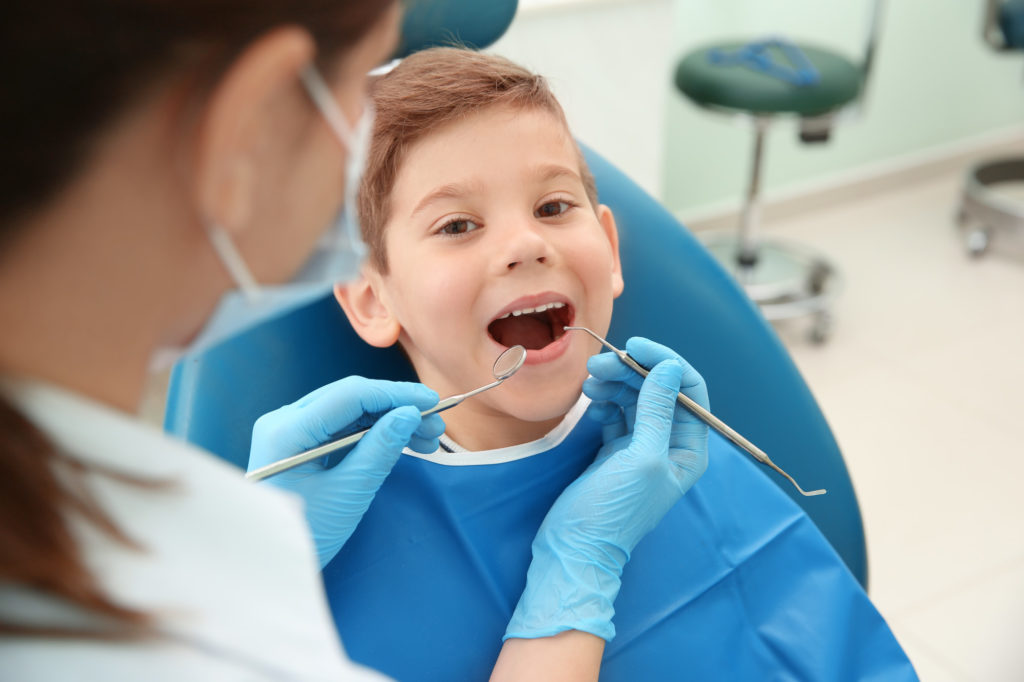
Tooth decay affects more than 90 percent of the US adult population.
American children are suffering too. Although figures have shown a slight improvement, tooth decay still affects more than 40 percent of those aged between two and 19.
Poor oral hygiene is the main cause of issues such as cavities and gum disease. But the vitamins and minerals we consume through our diets also help strengthen our pearly whites and boost our oral health.
Read on to find out more about the key minerals and vitamins for healthy teeth and gums, and how to boost your child’s intake of each.
Calcium
One of the best ways to strengthen your teeth is to consume more calcium. After all, this mineral is one of the main building blocks of your teeth and bones, including your jawbone.
Calcium helps teeth maintain their strength and structure, ensuring that they’re sturdy enough to bite through food and fight off bacteria. If you’re not getting enough calcium in your diet, your body takes the calcium it needs from your teeth and bones, causing them to weaken.
You can avoid this happening to your child by ensuring that they consume calcium-rich foods and drinks. Dairy products such as yogurt, milk, and cheese contain a form of calcium that’s easy to absorb. Canned fish such as sardines also provide calcium, while vegan options include fortified cereals, soy-based products, and leafy green vegetables.
Vitamin D
Vitamin D is one of the most important vitamins for strong teeth. This is because it plays a role in helping your body absorb calcium. But, it also helps to improve your bone mineral density in its own right.
So how do you make sure your children get enough vitamin D each day? Our bodies make vitamin D when exposed to sunlight. Getting outside at recess for around 15 minutes a day is often enough to top up your child’s levels of the sunshine vitamin.
Of course, people who live in cloudier, colder parts of the world can lack vitamin D. They may need to take it as a supplement alongside vitamins for teeth to ensure their smiles stay strong and healthy.
It’s also possible to consume extra vitamin D through your diet. Some foods, such as milk, breakfast cereals, and orange juice, have added vitamin D. Fatty fish like salmon and mackerel, portobello mushrooms, and soybeans also contain vitamin D.
Phosphorus
Most of the phosphorus we have in our bodies is in our teeth. Phosphorus helps your body consume calcium and also works alongside calcium to protect and rebuild tooth enamel. As such, this mineral plays an important role in the strength of our teeth and bones.
A variety of foods contain phosphorus. Seafood is a great source of this mineral, while plant-based sources include soybeans, dried fruit, lentils, and pumpkin seeds. You can also find phosphorus in nuts, eggs, meat, and even carbonated drinks.
Iron
Supplements for healthy gums often contain iron because of the way this mineral helps the body maintain healthy red blood cell levels. In turn, the body can defend itself against infection and disease.
A lack of iron can weaken the immune system. Even if your child has good oral hygiene, low iron levels can make it more likely that your child will develop gum disease and oral infections.
Make sure your child’s immune system is firing on all cylinders by including lots of cereals, bread, green leafy vegetables, eggs, seafood, and red meat in their diet.
B Vitamins
For healthy gums, vitamins B2, B3, and B12 should all be on your radar. These B vitamins help improve your child’s oral health by preventing mouth sores and bad breath.
Meat, fish, and poultry are good sources of these vitamins. But you can also find a good amount of B vitamins in dairy, almonds, and leafy greens like spinach.
Vitamin A
As well as being important for good eye health, vitamin A is also one of the best vitamins for teeth.
Vitamin A helps the body form and maintain tissues like teeth and mucous membranes. It also helps promote saliva production, which is vital in cleaning out bacteria and food particles from your mouth.
You can ensure your child gets enough vitamin A in their diet by giving them plenty of orange fruits and vegetables, leafy greens, egg yolks, dairy, chicken, and red meat.
Vitamin C
Vitamin C is often a key ingredient in supplements for healthy gums. While many vitamins for teeth help maintain the physical structure of your pearly whites, vitamin C boosts the blood vessels and connective tissues that support your teeth.
Vitamin C is also vital to your immune system and your body’s natural healing process. Without enough vitamin C, you may experience inflammation and bleeding gums. They’ll also take longer to heal and repair themselves due to a lack of this vital vitamin.
Including plenty of fruits and vegetables in your child’s diet will ensure they get enough vitamin C. In particular, kiwis, berries, oranges, red peppers, leafy greens, broccoli, and cauliflower are all good sources.
Potassium
Like vitamin D, this mineral helps boost bone mineral density. This means that your bones need a good dose of potassium to maintain their strength and structure.
You’ll find potassium in bananas, which are always popular with children. But Swiss chard, prunes, avocados, and lima beans also contain potassium.
Boost Your Intake of These Vitamins for Healthy Teeth and Gums
By including these vitamins for healthy teeth and gums in your child’s diet, you’ll help boost their oral health as well as their general health.
That said, while there are plenty of different food sources for each vitamin and mineral listed here, the parents of super picky eaters might find it hard to cover all their bases. If that’s the case, your child may need to take supplements for healthy gums and teeth.
For more information, feel free to contact us with any questions or queries.
 (214) 453-2565
(214) 453-2565